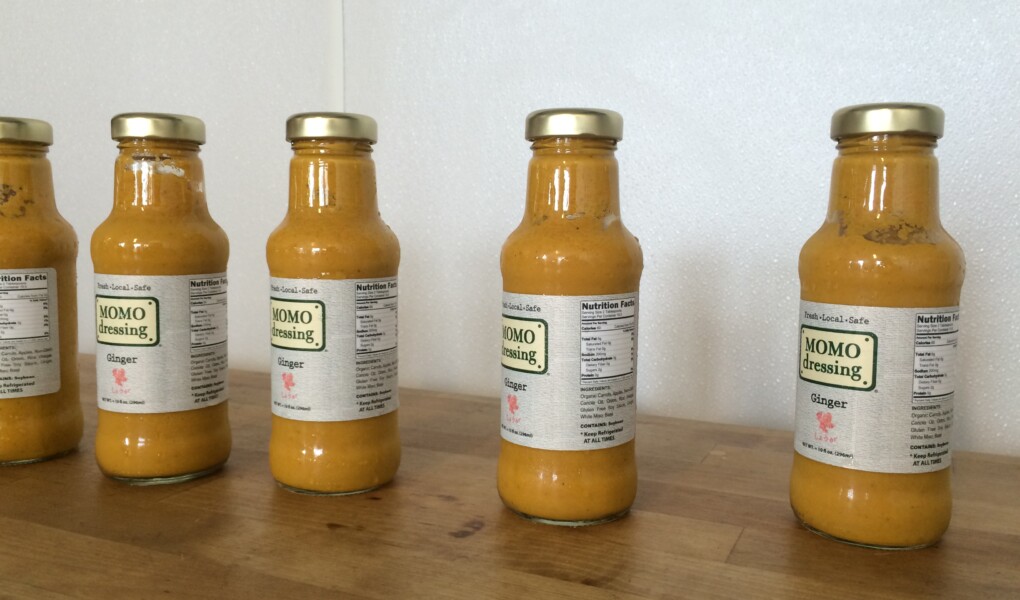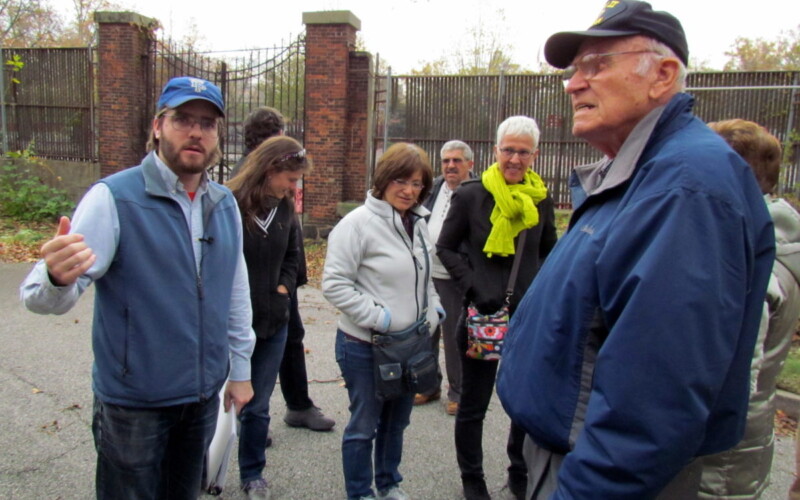Masaki and Yukimi Momose have been making their Japanese-style salad dressings for more than three years, but now, they are finally making it in a space they can call their own. Their company, MOMO Dressing, is the first tenant in the Brooklyn Army Terminal’s Annex, a former administration building for the military complex that is now being reinvented as a center of food manufacturing.
MOMO held their grand opening on August 10 with the New York City Economic Development Corporation, which spent $15 million renovating the 55,000-square-foot building. Also in attendance was another food manufacturer who calls the Terminal home – chocolatier Jacques Torres.
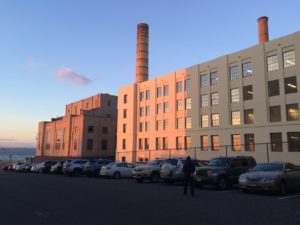
“This is a really great location to start and grow a business,” Torres said, noting many of the advantages for industry at BAT: easy access to freight elevators and loading docks, and great community of businesses that he often turns to for help, including machinists to fix his equipment when it breaks down, and furniture makers that fit out his offices.
And there’s another advantage that any visitor to the massive concrete complex will recognize: “It’s really overbuilt. These buildings were built for manufacturing.”
Now occupying a third-floor, 2,400-square-foot space, MOMO is able to churn out about 400 bottles a day of their dressings and dips. While they’re still looking to scale up and automate, this is a huge improvement over their previous setup at an incubator kitchen they shared with 50 other companies at nearby Industry City.
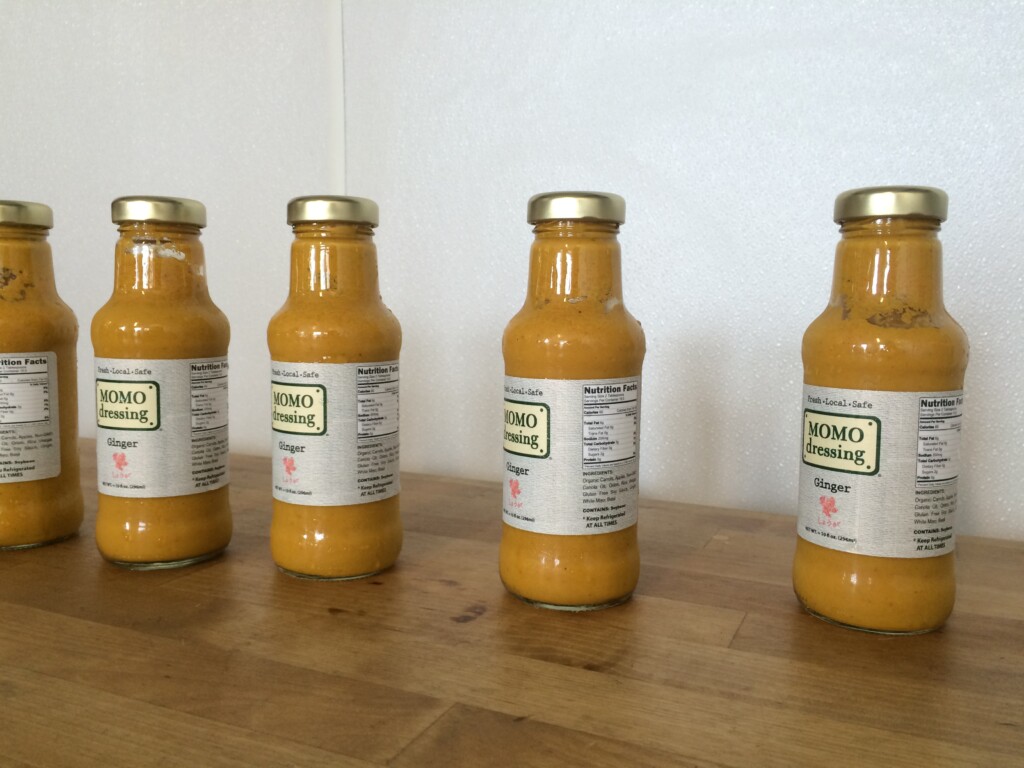
“We were so limited,” Masaki said, especially by the small amount of freezer space they were allotted at the incubator. Now, with their own walk-in, and a production line they can operate whenever they choose, “I’m more aggressive, more positive about going after big accounts.”
NYCEDC President Maria Torres-Springer was also in attendance, touting the importance of developing more space for food production. Food is now the largest manufacturing sector in the city, and the fastest growing. According to a 2016 report from the Center for an Urban Future, the number of food production jobs has increased 27% in the last decade, the only manufacturing sector in NYC to experience growth, and providing more than 17,500 jobs in 2015. That report also noted one of the chief obstacles companies face: “Manufacturing space in the five boroughs comes in short supply, at high costs, and with little security of tenure.”
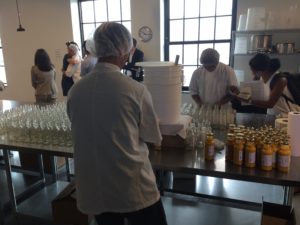
Torres-Springer recognized this challenge, noting, “One of the main barriers is finding space that is appropriate, that is affordable, and that is customizable.” The Annex is certainly that, offering spaces for up to 10 different companies within the food hub, and room to grow into the other buildings of the Terminal.
Building A, one of the two hulking main structures of the complex, will soon be adding more than 500,000 square feet of new industrial space. This expansion is part of the de Blasio administration’s commitment to invest $100 million to complete renovations of the entire 4-million-square-foot complex, which has been redeveloped in staggered phases since the city purchased it from the federal government in 1981.
Speaking of the federal government, Jacques Torres and MOMO aren’t the first to use this site for food production. Back when the Terminal served as a major supply depot in World War II, many non-perishable food items were stored, processed, and shipped there. According to an article in New York Post, published February 26, 1941, “Right now there are 6,000,000 pounds of coffee stored there; 400,000 pounds of flour, a few thousand cases of ketchup, and a couple acres of beans.” Each year, the massive roastery within the complex roasted roughly 40 million pounds of coffee beans each year during the war.
MOMO isn’t quite there yet, but the owners are hopeful that this new location will give them the boost they need to grow.
Once the speeches were over, rather than a ribbon cutting, the space was christened with a salad – several bottles of their signature ginger carrot dressing were dumped into a massive bowl, and we all enjoyed a little taste of Brooklyn industry.
You can find MOMO’s full line of dressings, marinades, and dips (we highly recommend their edamame dip) at Whole Foods, Union Market, and a host of other retailers, as well as at farmers markets at Smorgasburg – see the full list of locations.

